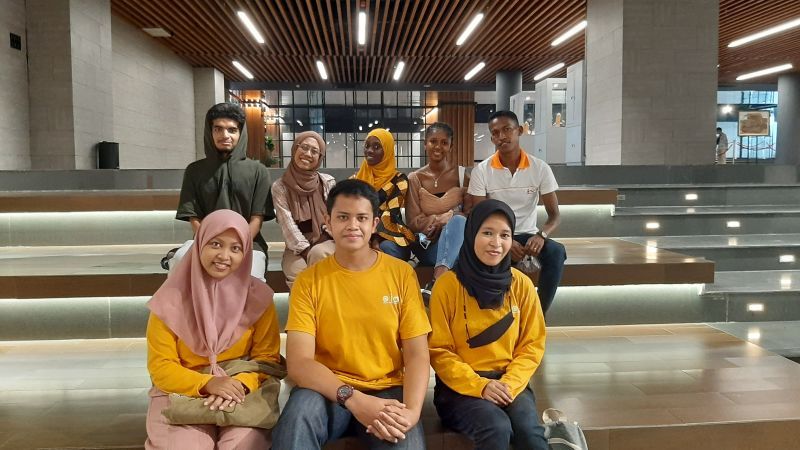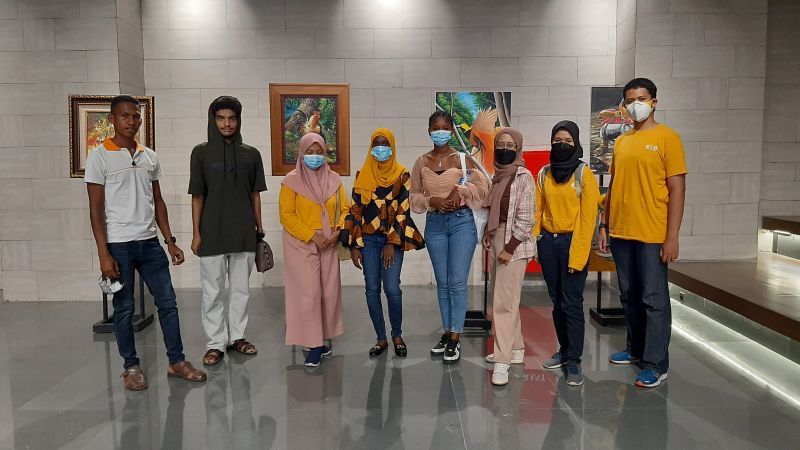
www.unesa.ac.id
Unesa.ac.id, SURABAYA-Traveling with foreign students is a routine event held by BIPA UNESA. Foreign students are invited to get to know various Indonesian cultures, including historical places in the city of Surabaya. This program had been suspended since the Covid-19 pandemic and only started again this year.
“The pandemic has made this activity a 2 year gap. Now, as there are concessions and foreign students are allowed to come to Indonesia, we are just starting again,” said Warsita, UNESA BIPA Lecturer.
He continued, recently, four foreign students, two from Gambia and one from Saudi Arabia and another from Madagascar, together with lecturers and BIPA friends, tried out historical and iconic places in the city of Surabaya, including the Ten November Museum, the Surabaya statue in Kebun Animals from Surabaya, to the square.

www.unesa.ac.id
“The museum is one of our destinations to learn the history of Surabaya with foreign students starting at 9-3 pm. Here, they are quite amazed by the museum and can know the history of the struggle of the people of Surabaya on the 10 November incident,” he explained.
When they went to the zoo, it turned out that there were foreign students who had just seen firsthand some of the animals there. "So far they have only seen it on social media or television. So they only saw it in person when they were in Surabaya,” said Warsita.
The cultural introduction program aims to introduce directly the various cultures of the archipelago in Surabaya. According to him, foreign students from the BIPA program not only learn Indonesian, but also learn directly about the culture and traditions that exist in Indonesia.
“By understanding the culture and traditions here, students besides knowing a lot about Indonesia, can also be a supporter and make it easier for them to learn Indonesian. They can also directly talk to ask for directions, make the actualization of learning in the classroom concretely with the Indonesians they meet during the tour, "he explained. [UNESA PR]
Author: Madina
Editor: @zam*
Share It On:






